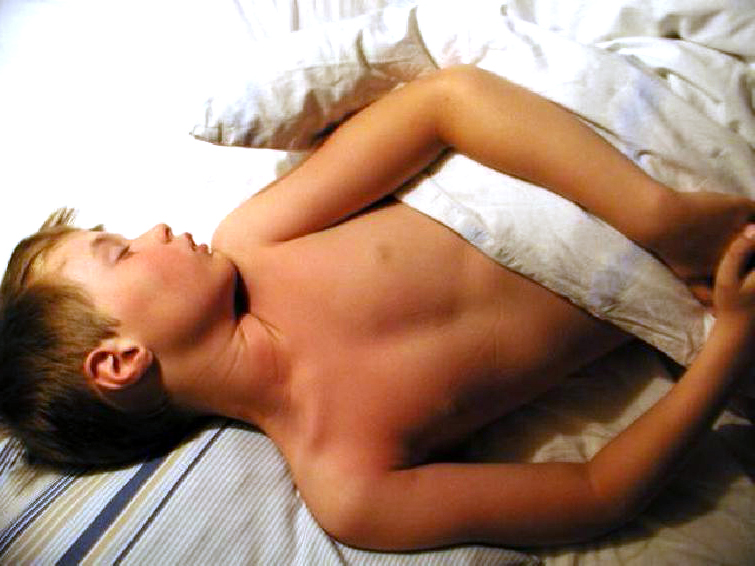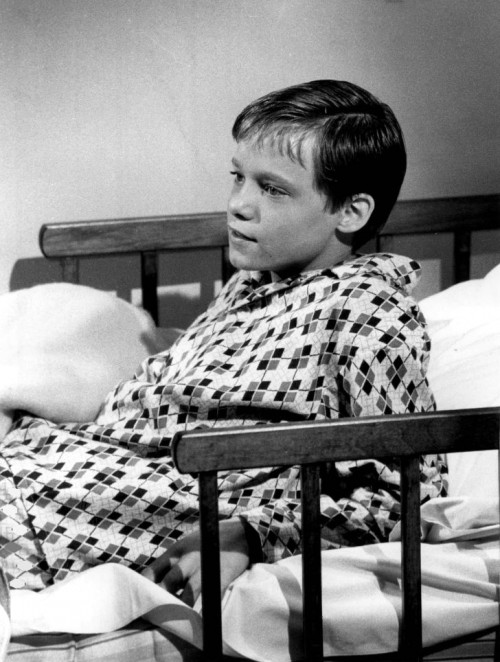Bed Wetting (Enuresis) – 1
Some of you might be old enough to remember a movie on television called “The Loneliest Runner” starring Michael Landon about a famous runner who said that he “owed it all to his mother.”
What he said he owed his mother for was the motivation to become a world-renowned distance runner.
You see, the movie really was about the results of bed wetting and the character that Michael Landon played was a boy who wet his bed at night. As a means of getting him to stop wetting the bed, his mother would try and shame him by hanging his wet sheets out over his bedroom balcony on the front of the house.
If the boy wanted to avoid the embarrassment of having all the children on the school bus see his sheets hanging out of the window, and discover his bed wetting, he had to run immediately from school and literally race the school bus to his home.
Over the years he became a superb distance runner.
A few columns ago I mentioned that approximately 10 percent of first-grade children still wet the bed. I’ve recently read other articles that describe the incidence anywhere from 10 – 20 percent of seven-year-olds still having enuresis (bed wetting).
A reader has asked for advice on what to do to help her son.
Diagnosis of bed wetting
 This is a problem for which you should take your son or daughter to a pediatrician for a good, thorough physical examination. You should be aware, however, that in this problem there is a wide variation between doctors in the amount of workup and time spent in the office educating about the problem. Some do it well others don’t take much interest in it.
This is a problem for which you should take your son or daughter to a pediatrician for a good, thorough physical examination. You should be aware, however, that in this problem there is a wide variation between doctors in the amount of workup and time spent in the office educating about the problem. Some do it well others don’t take much interest in it.
To help in the diagnosis, physicians describe enuresis as either primary or secondary.
Secondary is a child who was once “trained” and for some reason, either an infection or psychological, begins wetting the bed again.
Primary is a child who basically has not ever been night trained for any length of time.
Bed wetting appears to affect boys more often than girls and reflects a large number of causes.
Causes of bed wetting
The nervous system connections to the bladder, and the different “urinary valves” are not present at birth. They must be developed as a child grows older and are usually not even completely present until about age three.
The vast majority of children are not physically capable of “holding it” under voluntary control until after three years of age. Potty training before the child can come to you and tell you that they are wet or messy (around three years) is frequently not productive and may even be, in the long run, harmful.
 There is a wide range of “normal” for night-time training, sometime between three to five or six. Often training before that reflects parents learning when to take the child to the bathroom and other such efforts. Not really a bad thing unless coupled with messages of good/bad over something upon which they have no control – really, really hard not to do once you engage in it.
There is a wide range of “normal” for night-time training, sometime between three to five or six. Often training before that reflects parents learning when to take the child to the bathroom and other such efforts. Not really a bad thing unless coupled with messages of good/bad over something upon which they have no control – really, really hard not to do once you engage in it.
Then, of course, there is the size of the bladder that determines how much the bladder can store. A thickened bladder which can only hold one – fourth cup of urine cannot be expected to make it through the whole night.
As most bladders slowly fill with urine, they gradually relax to expand and fill. Some bladders, however, have higher resting tone and sensitivity so exhibit short intermittent muscle spasms as they stretch.
This creates the urge to urinate before the bladder is really full. Excitement, nervousness and anxiety can also make the bladder muscles more tense, hence, decreasing its capacity.
In addition, some bladders seem to be sensitive to materials in the urine. It may be an allergy. I have seen some children who have stopped wetting the bed when we took them off milk and/or citrus products.
The depth of sleep is also a factor in whether or not the child wets the bed.
If the child sleeps so soundly that the “stretch” signals from the bladder, as it fills to capacity, do not make it through to the child’s consciousness, the child won’t wake up.
An interesting phenomenon that is noticed is that wetting the bed seems to be associated with the various phases of sleep during the night.
 An individual cycles through the three stages several times during the night – from very light sleep to the very deep, restful sleep and then back into a lighter dream sleep.
An individual cycles through the three stages several times during the night – from very light sleep to the very deep, restful sleep and then back into a lighter dream sleep.
Enuresis seems to occur as the child emerges up from the deep sleep into the lighter, dreaming sleep.
Theoretically then the more cycles of dreaming the child has through the night, the greater the chance that it will occur simultaneously with the full bladder, causing wetting.
It would follow, then, that anything which increases dreaming — like anxiety, scary movies, late meals — would increase the wetting.
There are, in addition, some kidney, bladder and urethral malformations which predispose to bed wetting. These will need to be diagnosed by your physician.
I hope you can see that the majority of the items which we have discussed are initially beyond the control of the child; and are, therefore, not punishable offenses.
There should be no undue coercion or punishment as long as the child physically cannot hold it. However, at the same time, motivation should be there such that when the child is physically capable, sheer force of habit does not prolong the problem unduly.
The trick is to watch for this readiness time, while minimizing the damaging effect that enuresis has on the child’s self-esteem.
Next week we will discuss things that parents can do to help their child through the enuresis problem.
2 Posts in Enuresis-Bed Wetting (enuresis) Series
- Part 2 - Bed wetting – 6 Jul 2013
- Part 1 - Bed wetting – 9 Jun 2013
Advertisement by Google
(sorry, only few pages have ads)

